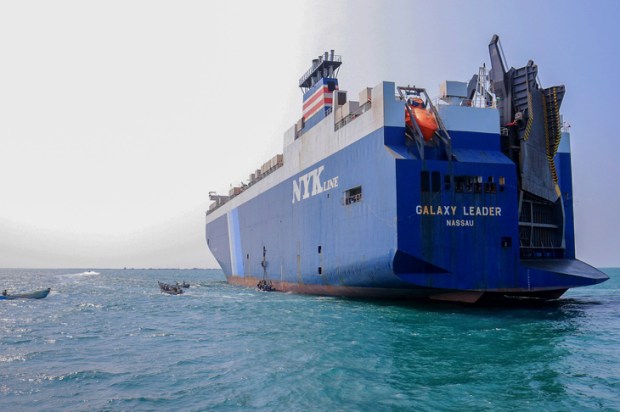Moscow blames hostile actors for last month’s underwater explosions that blew up the Nord Stream pipelines connecting it to Germany. The Western mainstream media has mostly accepted Russia’s culpability. However, Michael Gfoeller and David Rundell note in Newsweek, ‘Nearly 90 per cent of the world isn’t following us on Ukraine’. Don’t hold your breath for an impartial independent investigation. With four plausible suspects, in classic thrillers style it’s worth looking at means, opportunity and, most revealingly, motive.
The sophisticated operation, likely involving a well-trained and equipped navy, special forces, technical planning and specialist logistical support, had to involve one or more state actors. All four potential suspects fit the bill. Any country with the means would have plenty of opportunity but, considering the location in waters around Poland, Denmark and Sweden, it would be more challenging for Russia than the others to escape complete detection.
Regarding motive, it’s worth asking a favourite question in crime thrillers: cui bono? History is full of examples of powerful countries conducting false-flag operations, provoking military incidents or issuing impossible ultimatums as the trigger to attack or for an invasion. In the Mukden incident in 1931, Japanese troops bombed a railway under their own control as the pretext to invade Manchuria and establish the puppet state of Manchukuo (Manzhouguo). In 1933, the Nazis set fire to the Reichstag and Hitler exploited that to rule under emergency powers until 1945. In 1938, Britain and France delayed war by a year by appeasing Hitler’s designs on Czechoslovakia in the infamous Munich Pact. In 1964, two US destroyers were attacked off the coast of Vietnam. President Lyndon B. Johnson, describing it as unprovoked despite clandestine US activities in support of South Vietnamese sabotage inside North Vietnam, got Congress to pass the Tonkin Gulf resolution that allowed a steady escalation of the Vietnam War. In 1999, Nato went to war against Serbia because President Milošević rejected the Rambouillet ultimatum on Kosovo that dictated the terms of political settlement between the central and provincial governments. In November 2002, Iraq agreed to comply unconditionally with UN Security Council Resolution 1441 that imposed tough inspections. Thwarted in their desire to provoke Saddam Hussein into defying the UN as the pretext to go to war, Blair and Bush scrambled to ‘fix’ intelligence around the decision to invade Iraq with as much illegality as Putin’s invasion of Ukraine.
Russia has the least to gain and the most to lose from the act of sabotage that destroyed a lucrative export lifeline and its main source of leverage over Europe. In a tortured explanation, James Crisp in the UK Telegraph argues that blowing up the pipelines was ‘a page ripped straight from Vladimir Putin’s playbook of panic, escalation and misdirection’ that will raise soaring gas prices and exacerbate the cost of living crisis in Europe. But Russia could simply have turned off the valves without destroying a very expensive asset. Crisp speculates further that the explosions ‘could be a warning of what Russia could do to pipelines from Norway’. Telegraph readers were not impressed. David Anderson ‘clarified’ Crisp’s thesis with words worthy of Sir Humphrey Appleby: ‘Putin may or may not have done something which doesn’t appear to make any difference, but perhaps he’s doing it because he may or may not be planning to do something in the future’. Yup, that about sums it up.
Fox News host Tucker Carlson, public intellectual Jeffrey Sachs and podcast host Joe Rogan are among the few with the stature and courage to discuss the possibility that the US may itself have been behind the blasts. Victoria Nuland, a senior diplomat (I use the term loosely, you understand) of ‘F–k the EU’ fame during Ukraine’s political upheavals in 2014, insisted on 27 January, ‘If Russia invades Ukraine, Nord Stream 2 will not move forward’. On 7 February, President Biden said if Russia invaded Ukraine, ‘there will be no longer a Nord Stream 2’. Pressed to explain how, Biden doubled down: ‘We will – I promise you – we will be able to do it’. Poland’s former defence minister (and husband of the Polish-American Atlantic columnist Anne Applebaum, a Russia hawk) Radek Sikorski tweeted (since deleted), ‘Thank you, USA’, which of course Russia immediately noted. After the attack, Secretary of State Antony Blinken said, ‘It’s a tremendous opportunity to once and for all remove the dependence on Russian energy and thus to take away from Vladimir Putin the weaponisation of energy as a means of advancing his imperial designs’. This confirms that Nuland’s and Biden’s earlier remarks reflected a deliberate strategy. Jonathan Cook suggests if Europe turns a blind eye to evidence of US role in the explosions, it would denote an ‘acceptance of vassal status’. But would the US really attack a piece of joint Germany-Russia infrastructure that is critical to Europe coping with an anticipated harsh winter in which people fear having to choose between heating and eating? It’s more likely the US approved the attack and helped with support and planning without direct participation.
Poland has both commercial and historical reasons (Russo-German collaboration must be especially painful). The Nord Stream pipelines would reduce lucrative transit fees for gas shipments from Norway to Europe through Poland. It’s been at the forefront of efforts to help Ukraine with all possible means and uncompromising in opposing any concessions to Moscow. Speaking in Kyiv in August, President Andrzej Duda called for ‘the liquidation, the complete dismantling’ of Nord Stream 2. Yet, the notion that Poland would risk a grave rupture of relations with Germany seems far-fetched.
Ukraine had the least to lose and most to gain from the explosions. It’s a tit-for-tat response to Russian attacks on Ukraine’s infrastructure. The victim of Russian aggression, already at war and determined to recapture lost territory on the battlefield or regain them through economic pressure, Ukraine is the least concerned with escalation that will entangle Nato and the US directly. Commercially, Nord Stream enables the supply of Russian gas without having to pass through Ukraine, a significant revenue loss and a diminution of influence in Europe. Geopolitically, the damage deprives Russia of a critical lever to blackmail Europe. Assuming the act required close partnership with US intelligence and military in training, supplies, logistical support and crucial information, it will also enhance Ukraine’s credibility as a potential Nato ally. But meanwhile Ukraine is not a Nato member and therefore Russia has still not been directly attacked by Nato; an important firebreak against uncontrolled escalation through the nuclear threshold.
Got something to add? Join the discussion and comment below.
Get 10 issues for just $10
Subscribe to The Spectator Australia today for the next 10 magazine issues, plus full online access, for just $10.
You might disagree with half of it, but you’ll enjoy reading all of it. Try your first month for free, then just $2 a week for the remainder of your first year.














Comments
Don't miss out
Join the conversation with other Spectator Australia readers. Subscribe to leave a comment.
SUBSCRIBEAlready a subscriber? Log in